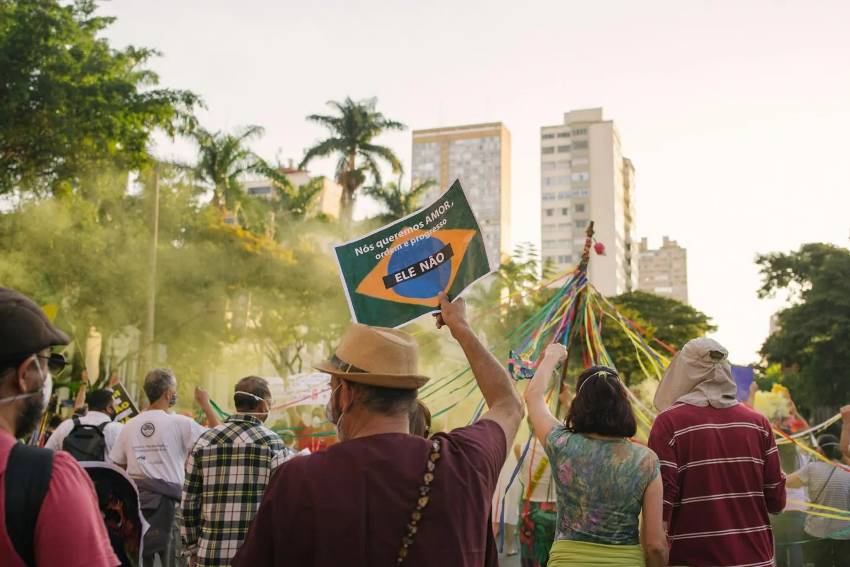Recent years have seen a decline in Brazil’s democratic foundations, mirroring global trends and potentially complicating future efforts to strengthen the country’s democracy, according to new research.
Summary: A study reveals how authoritarian populism in Brazil has eroded crucial democratic structures, reflecting wider global patterns and raising concerns about the nation’s democratic future.
Estimated reading time: 5 minutes
The administration of former President Jair Bolsonaro witnessed a weakening of welfare systems and human rights protections, elements critical to maintaining democratic stability in Brazil. This erosion of foundational democratic structures mirrors trends observed in other populist regimes worldwide, according to a new study published in the prestigious Brazilian journal Direito Publico.
Researchers from the Universities of Birmingham and Manchester found that polarization over welfare policies and rejection of international human rights norms significantly undermined these key pillars of democracy. The study suggests that the rise of militarism in government, a pattern seen in other populist regimes, was facilitated by Brazil’s unique historical context.
The Role of Welfare and Human Rights in Democratic Stability
Professor Chris Thornhill from the University of Birmingham, a co-author of the study, emphasized the crucial role of inclusive social systems in maintaining democratic health:
“Brazil’s experience reflects global trends of democratic erosion and resilience, highlighting the crucial role of welfare systems and human rights protections in maintaining democratic stability.”
He added, “Strong democracies are built on inclusive welfare provision and broad access to international human rights, but authoritarian populism undermined these foundations, creating an exclusionary view of citizenship and intensifying social conflicts.”
The research indicates that the complex interplay between welfare systems and human rights protections serves as a crucial safeguard against polarization and democratic decline. The restoration of these essential elements may be key to the future of democracy in Brazil and similar countries.
Brazil’s Unique Democratic Vulnerability
An intriguing aspect of the study is its examination of the relationship between militarism and democracy. The researchers suggest that democracies established during peacetime, like Brazil’s in the 1980s, may be more susceptible to authoritarian populism and militarization than those founded in the aftermath of war.
Lucas Delgado, co-author and former PhD student at the University of Manchester, noted:
“It remains to be seen whether Brazil will prove to be a resilient or a failing democracy, since rebuilding welfare systems and restoring human rights protections will be far more difficult than the process of dismantling them.”
This observation raises important questions about the long-term stability of democracies that lack the societal consensus on welfare provision often instilled by the experience of military conflict.
The Impact of Bolsonaro’s Administration
Under Bolsonaro’s leadership, controversies surrounding welfare policies intensified, and polarization regarding human rights law created fertile ground for populist authoritarianism. This led to the marginalization of individuals and groups associated with the Workers’ Party, limiting their influence in political life and, in some cases, affecting their full rights as citizens.
The study found that broader democratic outcomes typically supported by welfare and human rights protections were further undermined, creating an environment where societal divisions deepened, and partisanship dominated political behavior.
Looking Ahead: Challenges and Opportunities
As Brazil navigates its democratic future, the research highlights the need for concerted efforts to rebuild and strengthen the country’s welfare systems and human rights protections. The study suggests that these elements are not merely desirable features of a healthy democracy but are in fact crucial to its very survival.
The findings of this research have implications not only for Brazil but for democracies worldwide, especially those grappling with the rise of populist movements. By understanding the intricate relationships between welfare, human rights, and democratic stability, policymakers and citizens alike can work towards building more resilient democratic systems.
Quiz: Test Your Understanding
- According to the study, what two key elements of democracy were weakened during Bolsonaro’s administration? a) Economic growth and foreign relations b) Welfare systems and human rights protections c) Environmental policies and education reform d) Military strength and national security
- Why might democracies established in peacetime be more vulnerable to authoritarian populism? a) They lack military strength b) They have weaker economies c) They may lack societal consensus on welfare provision d) They have less international support
- What does the study suggest is crucial for the future of democracy in Brazil? a) Increased military spending b) Stricter immigration policies c) Restoration of welfare systems and human rights protections d) Expansion of the executive branch’s powers
Answers:
- b) Welfare systems and human rights protections
- c) They may lack societal consensus on welfare provision
- c) Restoration of welfare systems and human rights protections
Further Reading
Glossary of Terms
- Authoritarian Populism: A political approach that combines authoritarian governance with populist rhetoric and policies.
- Democratic Erosion: The gradual weakening of democratic institutions and norms within a country.
- Welfare Systems: Government programs designed to provide assistance and support to citizens in need.
- Human Rights Protections: Legal and institutional safeguards designed to protect individuals’ fundamental rights.
- Polarization: The division of society into opposing groups with contrasting views, often leading to increased social and political tension.
- Militarism: The belief that a country should maintain a strong military capability and be prepared to use it aggressively to defend or promote national interests.
Enjoy this story? Get our newsletter! https://scienceblog.substack.com


